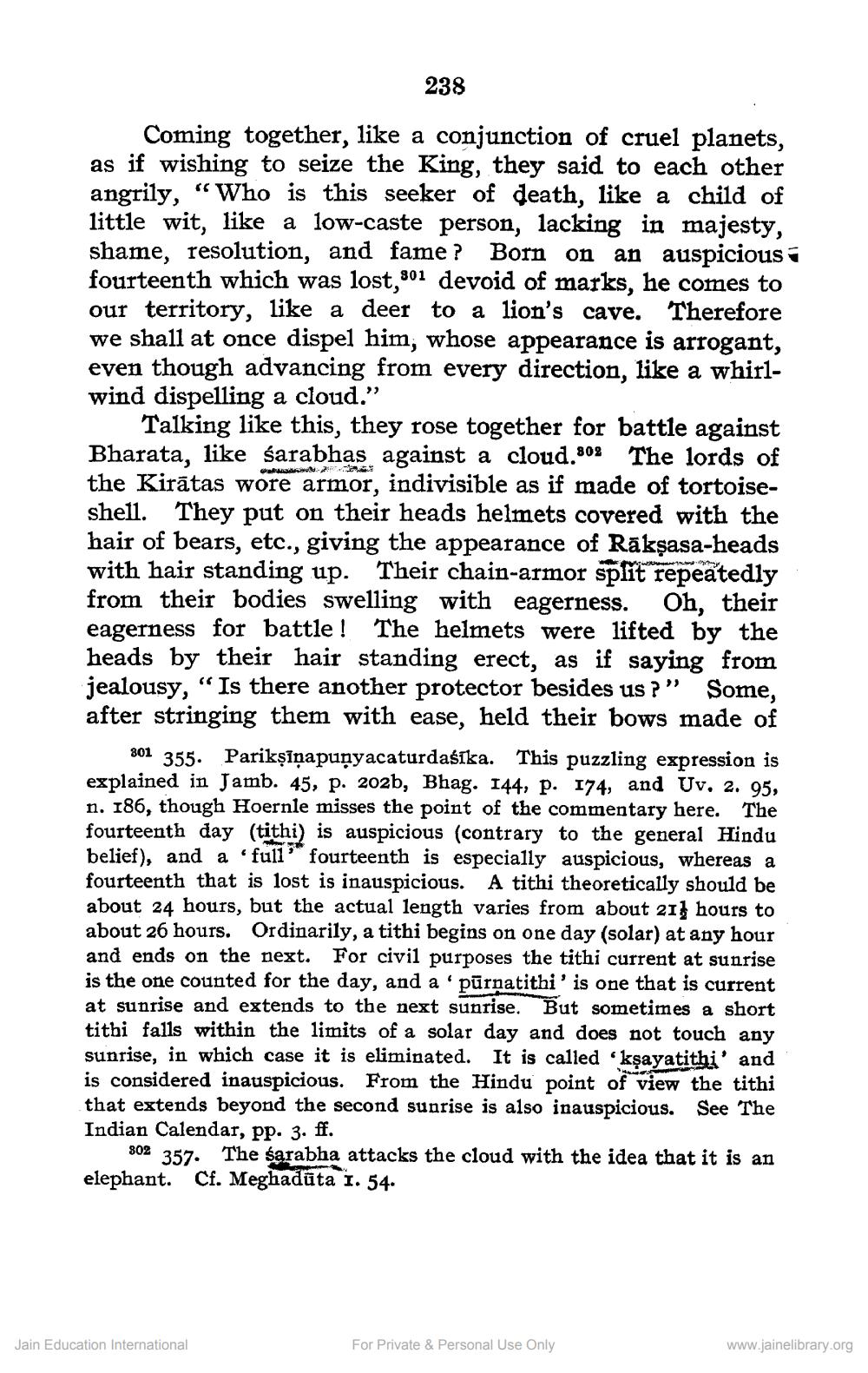________________
238
Coming together, like a conjunction of cruel planets, as if wishing to seize the King, they said to each other angrily, "Who is this seeker of death, like a child of little wit, like a low-caste person, lacking in majesty, shame, resolution, and fame? Born on an auspicious fourteenth which was lost,301 devoid of marks, he comes to our territory, like a deer to a lion's cave. Therefore we shall at once dispel him, whose appearance is arrogant, even though advancing from every direction, like a whirlwind dispelling a cloud."
Talking like this, they rose together for battle against Bharata, like sarabhas against a cloud.802 The lords of the Kirātas wore armor, indivisible as if made of tortoiseshell. They put on their heads helmets covered with the hair of bears, etc., giving the appearance of Raksasa-heads with hair standing up. Their chain-armor split repeatedly from their bodies swelling with eagerness. Oh, their eagerness for battle! The helmets were lifted by the heads by their hair standing erect, as if saying from jealousy, "Is there another protector besides us? Some, after stringing them with ease, held their bows made of
""
The
801 355. Parikṣiņapunyacaturdaśíka. This puzzling expression is explained in Jamb. 45, p. 202b, Bhag. 144, p. 174, and Uv. 2. 95, n. 186, though Hoernle misses the point of the commentary here. fourteenth day (tithi) is auspicious (contrary to the general Hindu belief), and a full fourteenth is especially auspicious, whereas a fourteenth that is lost is inauspicious. A tithi theoretically should be about 24 hours, but the actual length varies from about 21 hours to about 26 hours. Ordinarily, a tithi begins on one day (solar) at any hour and ends on the next. For civil purposes the tithi current at sunrise is the one counted for the day, and a 'pürnatithi' is one that is current at sunrise and extends to the next sunrise. But sometimes a short tithi falls within the limits of a solar day and does not touch any sunrise, in which case it is eliminated. It is called kṣayatithi' and is considered inauspicious. From the Hindu point of view the tithi that extends beyond the second sunrise is also inauspicious. See The Indian Calendar, pp. 3. ff.
802 357. The sarabha attacks the cloud with the idea that it is an elephant. Cf. Meghadüta 1. 54.
Jain Education International
For Private & Personal Use Only
www.jainelibrary.org




